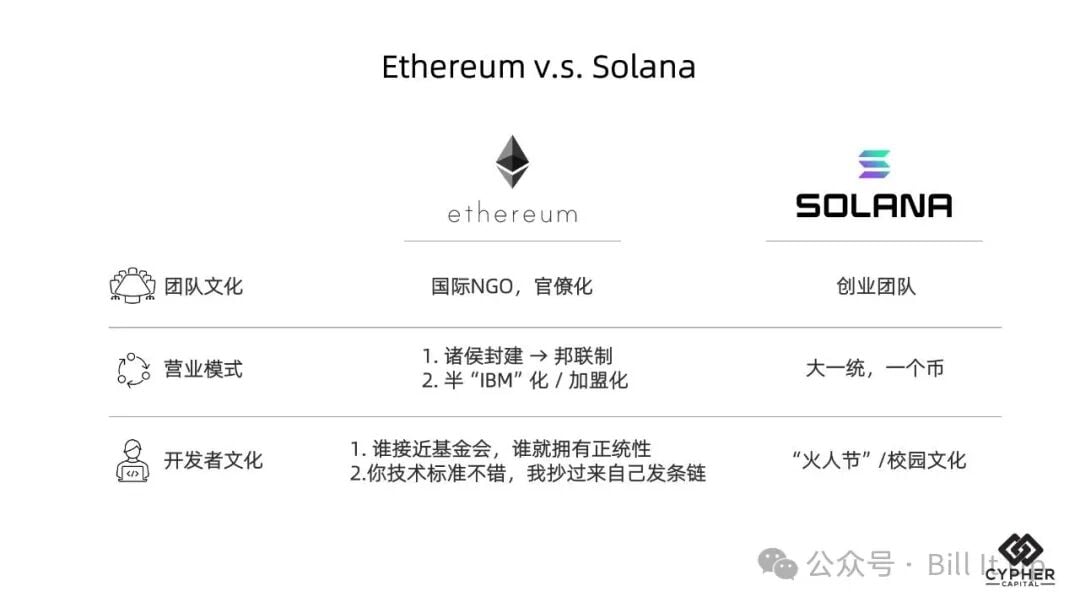First of all, I want to clarify that both I and our organization hold ETH and SOL, so it's not that we criticize ETH just because we hold SOL. The issues with ETH have been long-standing and will not be overlooked by the market due to previous hype.

Ethereum resembles an international NGO with a feudal system—bureaucratic, decentralized, and focused on procedural justice. Vitalik Buterin is like the Son of Heaven, having lost centralized power too early, allowing L2 to become feudal lords, with very limited financial contributions from local lords to the central authority. It even resembles the Commonwealth of Independent States after the dissolution of the Soviet Union, or the Commonwealth of Nations after the disintegration of the British Empire, and even that connection is somewhat tenuous.
Additionally, will ETH become like IBM? Microsoft, Amazon, and Nvidia are all worth trillions, while IBM is still lying low: it is a well-branded entity, exporting technology and empowering others, but ultimately its business does not capture the entire market's take rate (the tax model is the strongest business, such as Amazon taxing merchant transactions and Google taxing global advertising expenditures), but rather it has become an organization that licenses technology (and ETH's licensing is free, anyone can use EVM).
Another common issue is that within the developer culture, those who are close to the foundation and can flaunt their relationship with it possess "orthodoxy" and enjoy more attention from investors and the community. This centripetal culture of sycophancy is contrary to Ethereum's original intention.
Moreover, I have heard some major Wall Street institutions mention in private discussions that Wall Street players come to ETH partly because it is the oldest, most reliable, and branded public chain; on the other hand, many of them actually want to launch permissioned chains, and ETH's technology in this regard has been validated over many years. This mindset also treats ETH like IBM; it seems that Wall Street institutions share similar thoughts with Chinese financial institutions.
In contrast, Solana represents a typical startup team culture—centralized, efficient, and strong in execution. Its business model is an integrated unity, with one coin supporting the entire system. The developer culture resembles the "Burning Man Festival": young, passionate, and experimental, closer to campus hacker culture. From the perspective of team and culture, I still feel that Solana resembles a multinational tech startup team more.
Regardless, in the end, everyone is working together to bring global assets on-chain, and competition is a good thing for all of us.
免责声明:本文章仅代表作者个人观点,不代表本平台的立场和观点。本文章仅供信息分享,不构成对任何人的任何投资建议。用户与作者之间的任何争议,与本平台无关。如网页中刊载的文章或图片涉及侵权,请提供相关的权利证明和身份证明发送邮件到support@aicoin.com,本平台相关工作人员将会进行核查。




